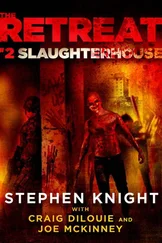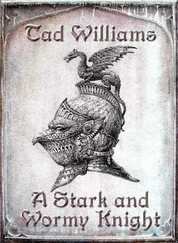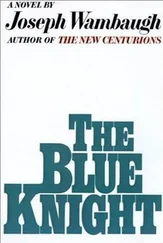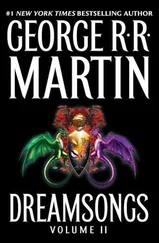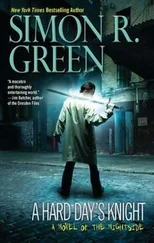Renée Knight - Disclaimer
Здесь есть возможность читать онлайн «Renée Knight - Disclaimer» весь текст электронной книги совершенно бесплатно (целиком полную версию без сокращений). В некоторых случаях можно слушать аудио, скачать через торрент в формате fb2 и присутствует краткое содержание. Год выпуска: 2015, Издательство: Harper, Жанр: Современная проза, на английском языке. Описание произведения, (предисловие) а так же отзывы посетителей доступны на портале библиотеки ЛибКат.
- Название:Disclaimer
- Автор:
- Издательство:Harper
- Жанр:
- Год:2015
- ISBN:нет данных
- Рейтинг книги:3 / 5. Голосов: 1
-
Избранное:Добавить в избранное
- Отзывы:
-
Ваша оценка:
- 60
- 1
- 2
- 3
- 4
- 5
Disclaimer: краткое содержание, описание и аннотация
Предлагаем к чтению аннотацию, описание, краткое содержание или предисловие (зависит от того, что написал сам автор книги «Disclaimer»). Если вы не нашли необходимую информацию о книге — напишите в комментариях, мы постараемся отыскать её.
recreates in vivid, unmistakable detail the terrible day Catherine became hostage to a dark secret, a secret that only one other person knew-and that person is dead.
Now that the past is catching up with her, Catherine’s world is falling apart. Her only hope is to confront what really happened on that awful day even if the shocking truth might destroy her.
Disclaimer — читать онлайн бесплатно полную книгу (весь текст) целиком
Ниже представлен текст книги, разбитый по страницам. Система сохранения места последней прочитанной страницы, позволяет с удобством читать онлайн бесплатно книгу «Disclaimer», без необходимости каждый раз заново искать на чём Вы остановились. Поставьте закладку, и сможете в любой момент перейти на страницу, на которой закончили чтение.
Интервал:
Закладка:
Robert is grateful he is alone, grateful that no one is there to witness his tears. The initial shock at seeing the pictures has given way to an ache which runs through him like a steel blade, which has sliced down from the crown of his head to his stomach. He feels his insides leaking from the gash. His fingers had been shaking when he’d texted Catherine to say he was stuck at work. A text was all he could manage. He couldn’t speak to her, not yet. He was not capable of having the conversation he knew they would have to have at some point, but not now.
He wants to believe that it is a mistake but he cannot deny what he is looking at. It is her. In full colour, in close-up. He can almost smell her body coming off the shiny prints. The images speak for themselves, images which are new to him, and yet flashes of which he recognises. The underwear. He had chosen it, and the red bikini. Her face is the same, younger, but the same, and yet her expression is not one he quite recognises. And that is so, so painful. He has never seen the absolute abandon on Catherine’s face. It is Catherine but it is not his wife. The location he recognises too. Spain in, when was it ’91, ’92? A small Spanish seaside town. A summer holiday for the three of them. And then his anger rises, and he is grateful for it — allowing it to overwhelm the pain for a moment. He remembers he had missed part of that holiday. He had flown back early, leaving Catherine and Nicholas behind. A case had come up, something which must have felt important at the time but now is lost in the more important fact that it took him away from his wife and child.
Catherine may not look like his wife in the photographs, but Nicholas is absolutely recognisable as his son. His smile. His slender body, baby fat gone, very much a little boy, no longer an infant. All angles, knobbly knees, sharp elbows. A constantly moving flash of a boy, electric with curiosity. Looking at this little boy fuels his anger. What did Nicholas witness? How much did he see? How much did he understand? The poor little mite would have had no choice. He couldn’t catch a flight home. He couldn’t ask Daddy to come and fetch him.
Robert pushes his mind back to when Catherine and Nicholas came home from that holiday. It was soon after that when Catherine announced she wanted to go back to work full-time. He remembers it well. It had come out of the blue. He had assumed she would stay at home a little longer, then go back part-time. It wasn’t the money; he was earning more than she was — enough for both of them. It had upset him, but he didn’t say anything; he covered up what he felt because he put her needs before his. He had kept his disappointment to himself. He swallows down the phlegm that has gathered at the back of his throat. She’d told him she was depressed, that she missed her work. She didn’t say it, but he could tell that being a mother was just not enough for her; she put her own needs before their child’s. But so had he. He had put Catherine’s needs before Nick’s. So it hadn’t been about work — it had been about her affair on holiday.
She was depressed about their marriage, not about being at home. He looks at the photos spread out on his desk. She found something more exciting on that holiday. Fucking hell, he’s been such an idiot. He should have pushed her the other night when he caught her burning the book. She was about to tell him, and she would have if he’d insisted. But of course he didn’t. He played right into her hands as always. That’s why she hasn’t been sleeping, that’s why she’s so fucking caught up with herself: she’s been found out. It wasn’t about Nick moving out, or her guilt — she doesn’t give a fuck for Nick or him. No, she’s been found out, that’s what this is about. Found out about an affair she had years ago. An affair she had under their son’s nose. Jesus Christ.
Poor Nicholas trapped in Spain with his mother and who else? Who was there with them? His mother with a stranger and him, a five-year-old witnessing god knows what. The perfect stranger? He rakes through his memory to see if he can retrieve any conversation he might have had with Catherine when she came home, something which might give him a clue. But all he comes up with are innocuous phrases: “ We missed you ,” “ It wasn’t the same once you’d left .” Well, that’s for fucking sure.
And what about Nicholas? Did he say anything which Robert could have picked up on? Should have picked up on? Did his behaviour change? Was he withdrawn? But Robert can’t remember Nicholas saying anything at all. Surely he would have said something like, “ Mummy’s friend did this ,” or “ We met this nice man ,” or “ Mummy made a friend, ” but he can’t remember his son saying anything, ever, about the time when he was alone with Mummy on holiday. And a stranger. Was it a stranger? Or did he know him? It worries him that Nicholas said nothing. It is not normal. For a child to simply say nothing. Children only say nothing when they are hiding something, something that is unsayable.
His phone beeps. A text from Catherine: “ Wish you’d let me know earlier. ” No kiss this time. He doesn’t respond. He doesn’t want to talk to her, or text her even. But his son he must talk to. He must see him. Remembering the Nicholas in the photographs and knowing how he is now as a young man, he is struck by the discrepancy. That crash-bang-wallop of a child is nowhere to be seen now in the plodding, rather aimless, twenty-five-year-old Nicholas. That child was snuffed out by adolescence — smoked out — and never quite recovered. He’d always asked himself, why? Why did he drop out? Why was he so unmotivated? And his mother had said nothing. Well, maybe this is why. Maybe little Nick saw, heard things he shouldn’t have. Perhaps now Robert has the key to unlock whatever it is that knocked the fizz out of his son.
“Nick? Hi, it’s Dad.”
“Hello.” His voice is flat.
“Listen, have you eaten?” Robert infuses his voice with enthusiasm.
“Er, no…”
“Well, I’m going to swing by and take you out to supper. I’ve had to work late and I’m starving…” Nicholas hesitates but Robert is determined: “Just a quickie, we can grab something in the pub near you. It’s on my way home.”
“Mum’s trying to get hold of you, by the way.”
“I’ve spoken to her, don’t worry,” he lies. “I’ll see you in fifteen minutes.”
There are four bells on Nicholas’s front door, three with scribbled names, one without. Robert rings the top nameless bell. He hasn’t been here since he and Catherine helped Nicholas move in three months ago. He pictures him making his way down the four flights. When he finally opens the door, he looks exhausted.
“Shall we go?” Robert beams, overcompensating for his son’s lack of enthusiasm.
“I’m not quite ready.”
“That’s fine; I’ll come up and wait.” And Robert follows him, holding back his strides to fit his son’s heavy tread, taking in Nicholas’s bare feet, the dirty soles; the post littering the hall floor; the stained, cigarette-burned carpet. Robert waits in the sitting room, peering into the kitchen, taking in the sink full of dirty plates; the blackened frying pan on the hob; the bin which needs emptying — juice and milk cartons, scraps of food spilling from the black bag. What you’d expect from a flat full of students, he tells himself, except Nick is the only one who isn’t a student. His flatmates are out and the place reeks of dope. He hopes that it’s from them, not Nick. Please don’t let him be back on weed again, he thinks, but he doesn’t want to risk annoying his son, so says nothing.
“Ready?” Robert pushes open the bedroom door and his stomach dips again. Pants, plates, jeans, cups, all dumped in their own filth. The duvet has a yellowish tinge to the edge where Nicholas’s face has rubbed against it. He is sitting on the bed putting on his socks. Robert watches him push his feet into the pair of black slip-on shoes he wears for work and feels another surge of anger towards Catherine. This is her fault. She pushed Nicholas away. She persuaded Robert that it would be good for him to be independent. There’s not even a lampshade on the ceiling light. His throat catches. He sees the mobile Nicholas had had as a little boy hanging from a hook intended for something else, the fragile paper wings of the plane crashing against the wall, not enough space for it to float freely.
Читать дальшеИнтервал:
Закладка:
Похожие книги на «Disclaimer»
Представляем Вашему вниманию похожие книги на «Disclaimer» списком для выбора. Мы отобрали схожую по названию и смыслу литературу в надежде предоставить читателям больше вариантов отыскать новые, интересные, ещё непрочитанные произведения.
Обсуждение, отзывы о книге «Disclaimer» и просто собственные мнения читателей. Оставьте ваши комментарии, напишите, что Вы думаете о произведении, его смысле или главных героях. Укажите что конкретно понравилось, а что нет, и почему Вы так считаете.




